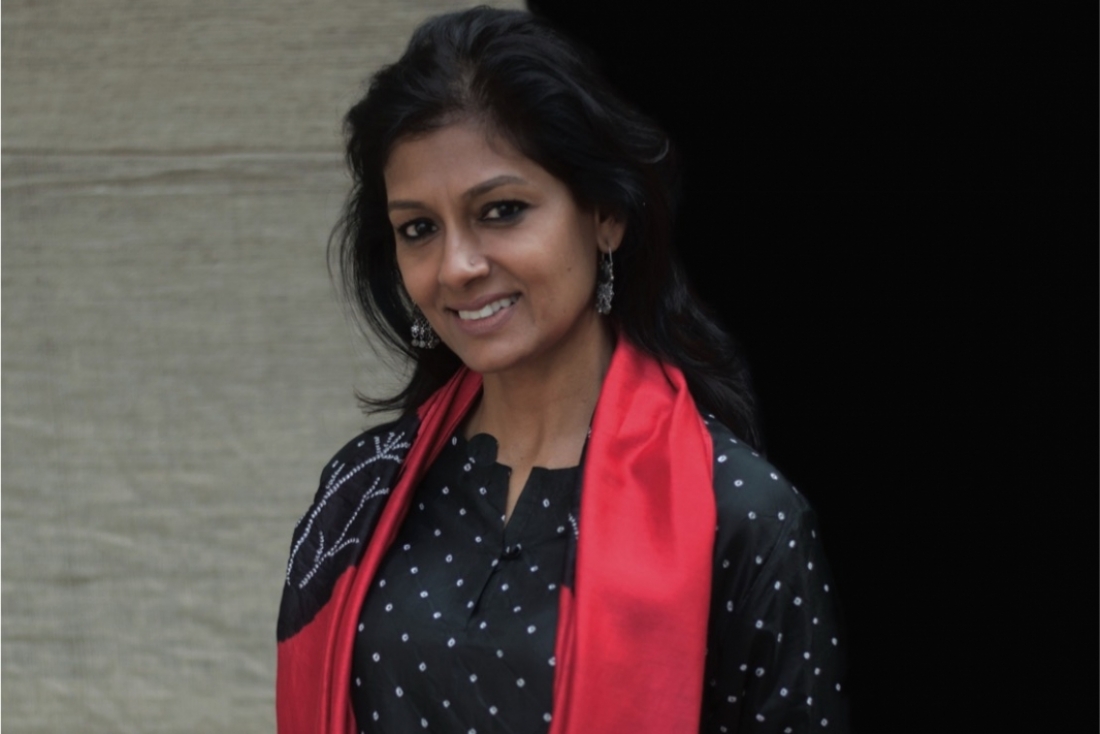

When I meet her on a winter's day in Delhi, Nandita Das greets me with the sunniest smile. The gentleness and humility about her is well- known and yet hard to believe given the strength and rebellion of her subjects. The sun is sharp, let’s take the shade, she says, still somewhat awkward with the fan attention we are occasionally interrupted by. Surprising for a veteran actor-writer-director who has awed many a decade with her firebrand stories. April is almost here, and so is Albert Pinto Ko Gussa Kyun Aata Hai? where she plays Stella.
Perhaps this is the best time to know her before you see her.
It’s been 10 years since you directed your first feature. Take me through your journey.
Having worked in 40 films as an actor, I realized only post Firaaq, my first directorial film, that direction is a long journey which starts from the time you think of a story until much after the release of your film where the conversations triggered by the film continue. I always say ‘Firaaq is my first child!’, but without that experience, I don’t think I would have been able to make Manto, which has been far more challenging. Though at the core, both Firaaq and Manto are manifestations of my life experiences, creative instincts, and human and social concerns.
Subconsciously, Manto is a continuation of the themes that I explored in Firaaq—identity, the notion of the ‘other’, prejudice, fear, emotional impact of violence, etc. While in the last eight years, my creative experiences have been lesser than my engagement in social issues, and I have spent the last seven years being a mother, in some mystical way, it has impacted my work also as a director.
In your opinion, is an artistic gene imperative to be a good artist yourself?
For starters, I have never assisted anybody nor have been in a film school, and have been an actor and director by default and not design. So, purely going by my experience, I would say that to be artistic, you have to have a creative instinct and be a keen observer of life. The rest helps but is not imperative.
In my case, my artistic instinct has definitely been nurtured by me being the daughter of a painter and a writer. I grew up with crafts, hand-loom, the earthy colours that we had at home— all of which impacted my visual aesthetics, and seeing my father paint at home helped me understand that art was anything but rigid and definable. Exposure to many artists, architects, photographer, musicians, dancers—friends of my father’s—helped me understand the larger world of creativity. And filmmaking is a composite art where many different forms come together. So in that sense, I am sure, my upbringing had a big role to play in nurturing my instinct.
I’m curious to know how your larger creative process flows...
After all the films I did as an actor, I could safely generalize that most male directors find it easier to “command their crew” than women. Somehow women are more team players. Also, their own vulnerability, shaky confidence, and passion make them more open to taking suggestions and being less self-important. For instance, I know that I used to think aloud often on the sets which were initially seen as being uncertain or not in control. Slowly with time, the crew began to realize it was simply my way of working.
Usually, I do many different things and it’s only when I’m directing that I need to focus on one thing for so long. But in filmmaking, there are several phases—researching, scripting, shooting, editing, sound, music—each important and distinct. So in many ways, one is doing different things through all of them are coming together for that one film, and I enjoy every aspect of it. Despite the fact that it’s a collaborative art, it’s also a very solitary journey, as only you know your reasons for doing what you do, and even that, often it is not so clear and defined, making it even harder to communicate with other team members. There are no simple ways to describe the creative flow, but all I can say is, the closer you get to your material, characters, locations, actors, and crew, the more you begin to know your film. It is also a process of self-discovery and unfolding of what you began with, which too is constantly evolving.
Text Soumya Mukerji